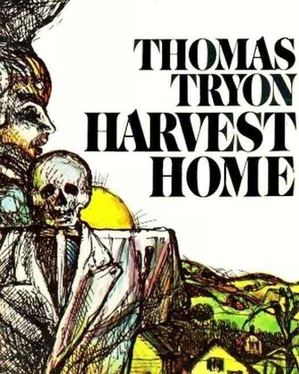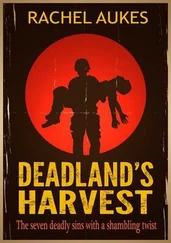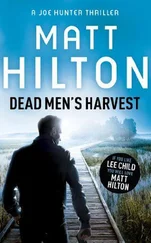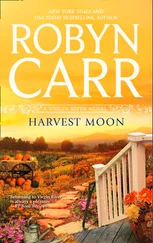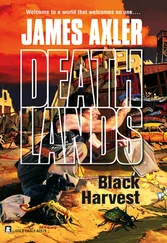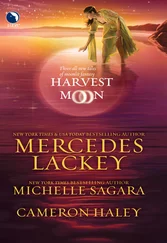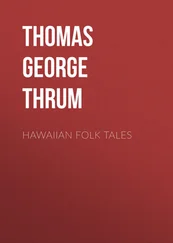Thomas Tryon - Harvest Home
Здесь есть возможность читать онлайн «Thomas Tryon - Harvest Home» весь текст электронной книги совершенно бесплатно (целиком полную версию без сокращений). В некоторых случаях можно слушать аудио, скачать через торрент в формате fb2 и присутствует краткое содержание. Жанр: Ужасы и Мистика, на английском языке. Описание произведения, (предисловие) а так же отзывы посетителей доступны на портале библиотеки ЛибКат.
- Название:Harvest Home
- Автор:
- Жанр:
- Год:неизвестен
- ISBN:нет данных
- Рейтинг книги:5 / 5. Голосов: 1
-
Избранное:Добавить в избранное
- Отзывы:
-
Ваша оценка:
- 100
- 1
- 2
- 3
- 4
- 5
Harvest Home: краткое содержание, описание и аннотация
Предлагаем к чтению аннотацию, описание, краткое содержание или предисловие (зависит от того, что написал сам автор книги «Harvest Home»). Если вы не нашли необходимую информацию о книге — напишите в комментариях, мы постараемся отыскать её.
For Ned and his family, Cornwall Coombe was to be come a place of ultimate horror.
Harvest Home — читать онлайн бесплатно полную книгу (весь текст) целиком
Ниже представлен текст книги, разбитый по страницам. Система сохранения места последней прочитанной страницы, позволяет с удобством читать онлайн бесплатно книгу «Harvest Home», без необходимости каждый раз заново искать на чём Вы остановились. Поставьте закладку, и сможете в любой момент перейти на страницу, на которой закончили чтение.
Интервал:
Закладка:
“Want the T.V. on?” I asked.
“In a bit. Not just now. Doesn’t that bird know winter’s coming?”
“He waited till you got better.”
She nodded an absent affirmative to my remark, scrunching up her nose like a rabbit. Then she sniffed, and turned to me wide-eyed. “That smells like chili! ”
I went into the kitchen, dished up a bowl, and brought it back on a tray with a glass of milk. “Pepe sends love.”
“Oh, Daddy-” I settled the tray on the table and held the bowl and spoon.
“I can do it.”
“You just lie there and let me spoon-feed you. You’ve been a sick girl.”
“How many’d you get?”
“Two. We can freeze what you don’t eat and you can have it another time. But not for-”
“Breakfast. I know.” She swallowed the spoonful I held for her and waited for the next. “Did you and Mom make up?” she asked, blowing.
“You heard us, huh?”
“Mm. It sounded as if you were doing toasts, like in War and Peace .”
“I think it was more war than peace.”
She let the subject drop then, and ate in silence, blowing on each spoonful as I held it for her. “Want some milk?”
“Mm.”
I handed her the glass, she took a few sips, then lay back against the pillows while I used the napkin on her mouth.
“Anything else?”
“Could you open the window? It’s sort of stuffy.”
I raised the window behind the sofa. From the other side of the hedge came the Invisible Voice. We listened together, trying to determine what it was today. Neither of us recognized the work. I lowered the window slightly and turned on the television, handing Kate the remote control so she could choose her channel; then I carried the tray to the kitchen. When I came back, Kate was watching June Allyson struggle valiantly with a bull fiddle on the television screen.
I made sure she had what she needed, then went back to the studio to continue preparing a gesso board for my new painting. While it dried, I straightened up my paint taboret, sharpened my pencils, threw out a bunch of old sketches, and packed my drawing kit. From Robert’s open window, the Invisible Voice continued reading, though I still had not yet caught enough of it to identify the work. When I came out the studio door, I found the buggy in the drive, the tethered mare contentedly chewing the grass along the hedge. The kitchen door popped open and the Widow appeared on the back stoop, fists on her hips, glowering.
“Chili!” The way she spat the word I decided it had a bad taste for her.
“Chili?” I replied mildly.
“Don’t you go giving that child none o’ that foreign muck. You want to upset her stomach? You feed her, you feed her what I leave to feed her, hear?”
“Yes, ma’am.”
She gave me another look, then retired. Passing the hedge, I heard the Invisible Voice:
“‘I am Charles Hexam’s friend,’ said Bradley; ‘I am Charles Hexam’s schoolmaster.’
“‘My good sir, you should teach your pupils better manners,’ replied Eugene.’”
I called over to Robert. “You’ve got me, Robert. What’s the book?”
“Try Our Mutual Friend .”
“Never heard of it.”
“Dickens.”
By spring, I decided, Robert would have read his way through the entire works. I climbed on my bicycle, and pedaled out into the lane.
I stopped at the post office to mail the letter I had written to the gallery in New York. As I dropped it into the box outside, I could see the postmistress behind the counter, weighing a package. Her head was down, her face obscured by her hair. Suddenly she looked up, as if she knew I was watching. She stared back at me, her face a mask, then she picked up a rubber stamp and stamped the top of the package. I walked back to the bicycle.
Coming along the roadway in front of the church on the far side of the Common was the pink Oldsmobile. I got back on my bike and rode south along Main Street; I could hear the car behind gaining on me. When I got to the intersection of Main and the River Road, I made a sharp left, and the pink car went roaring past. Glancing back, I saw Old Man Soakes behind the wheel, while two other faces peered at me through the back window. I heard their hoots and jeers as the car disappeared beyond the end of a cornfield, and a plume of blue exhaust dissolved in the air.
Ten minutes later, I was seated on a box at the corner of the small plot where Jack Stump’s bait shack stood. I spent an hour sketching the structure, then, dissatisfied with the results, concentrated on some of the details. There was a particular window I liked, with a piece of tattered shade, and a mud-dauber’s nest in the corner by a broken pane of glass. I contented myself with this small particular for the better part of the afternoon, until the sun caught the broken pane, reflecting in my eye so that it became difficult to work. I made one or two brief erasures on my page, then reversed the sketch against the light to check for errors. Turning it again, I held it up and compared it with the original. Suddenly something odd about the sketch caught my eye. Or, rather, something odd about the window itself. In the drawing, as I had completed it, the window shade hung down only four or five inches, but now, in the shack, the shade was drawn to the sill.
Sliding the pad into the case, I zipped it up and approached the door and listened. From the other side I could hear a faint scraping sound. I knocked.
“Jack? You in there?”
There was no reply. I backed away, studying the house-front. Inside I heard a slight cough, and another shuffling noise. I tried the door. It was locked.
“Hey, Jack, it’s me, Ned Constantine.” I waited for a few moments, then walked around to the back where a small door was cut into the crude siding of the shack. I turned the broken porcelain handle and stepped in.
It was a small, dark room, with little more than a dripping faucet over a sink and a disreputable two-burner stove marking it as a kitchen. A kerosene lantern sat on a rickety table; beside it was a sack of groceries. On the window sill was a shaving mug and an ivory-handled razor which I thought I had seen before. I went around the table and pushed open a door, beyond which was a small hallway. I crossed the hall and opened the other door.
With the shade drawn I could discern only vague shapes — a table, some chairs, a bed with rumpled covers against the wall. Making my way to the window, I raised the shade; it flew up on the roller with a clatter. I heard a sort of whimpering sound behind me and turned to see the bedcovers moving. A hand emerged from under the blanket to pull it up. I stepped past a pile of magazines and looked down.
“Jack?”
Again there was movement, and I reached to turn down the blanket. The hand reappeared, fiercely gripping a corner.
“Hey, old-timer, it’s me, Ned Constantine.”
The whimpering sound continued, and I bent closer. “Hey, Jack-what’s the matter?” As I pulled the blanket back, the peddler seemed literally to be shaking with fright. Cowering, he threw his head to one side and covered it with his arm. His skin felt hot and feverish, and the effort to restrain his tremors brought on greater ones, the shudders racking his frame.
I drew the blanket down farther, and knelt. He kept his head turned away, and it was only by my gentle insistence that he eventually turned it toward me, sliding the tattered sleeve of his shirt over the lower half of his face and gazing at me with red-rimmed eyes. The stubble on his face was shorter than usual, no more than a night’s growth.
“Are you sick?” I asked. He closed his eyes and shook his head. “Did you just get back? You’ve been gone a long time.” He nodded wearily. As I was used to doing with Kate, I reached for his wrist to feel his pulse. Instinctively he snatched his arm away, revealing his face.
Читать дальшеИнтервал:
Закладка:
Похожие книги на «Harvest Home»
Представляем Вашему вниманию похожие книги на «Harvest Home» списком для выбора. Мы отобрали схожую по названию и смыслу литературу в надежде предоставить читателям больше вариантов отыскать новые, интересные, ещё непрочитанные произведения.
Обсуждение, отзывы о книге «Harvest Home» и просто собственные мнения читателей. Оставьте ваши комментарии, напишите, что Вы думаете о произведении, его смысле или главных героях. Укажите что конкретно понравилось, а что нет, и почему Вы так считаете.
